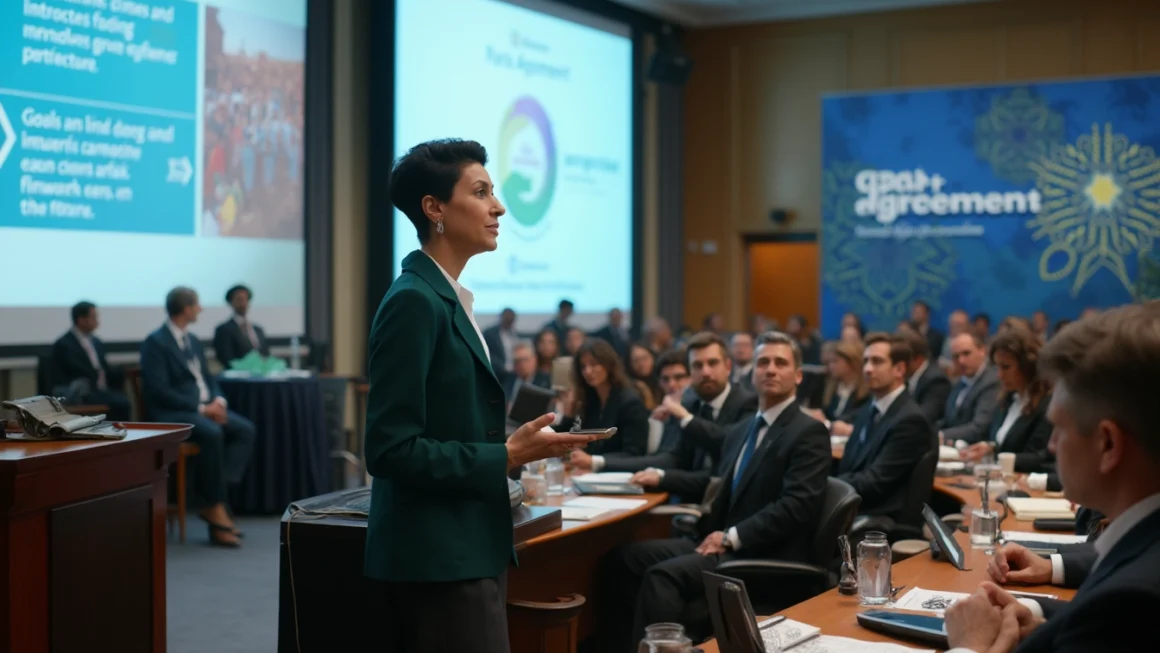Climate change is a global challenge that requires coordinated international action. As the impacts of rising temperatures and extreme weather events become more severe, countries around the world are working together to reduce greenhouse gas emissions and build resilience to climate impacts.
The Paris Agreement: A Landmark Global Climate Accord
Table of Contents
The 2015 Paris Agreement marked a turning point in global climate efforts. For the first time, nearly all countries committed to limiting global temperature rise to well below 2°C above pre-industrial levels, with efforts to limit it to 1.5°C. Key elements of the Paris Agreement include:
- Nationally determined contributions (NDCs) – Countries submit plans outlining their emissions reduction targets
- A “ratchet mechanism” to increase ambition over time
- Climate finance commitments to support developing countries
- A framework for transparency and accountability
While the Paris Agreement set an important framework, current national pledges are not yet sufficient to meet its temperature goals. Increased ambition and implementation are urgently needed.
Key International Climate Forums and Negotiations
Several important international bodies and processes support global climate action:
UN Framework Convention on Climate Change (UNFCCC)
The UNFCCC is the main international treaty on climate change. It hosts annual Conference of the Parties (COP) meetings where countries negotiate and make decisions on climate issues. Recent landmark COPs include:
- COP21 (2015) – Adoption of the Paris Agreement
- COP26 (2021) – Glasgow Climate Pact to accelerate climate action
Intergovernmental Panel on Climate Change (IPCC)
The IPCC assesses the latest climate science to inform policymaking. Its reports provide crucial evidence on climate impacts and mitigation pathways.
G7 and G20
These forums of major economies often address climate issues and make joint commitments on areas like clean energy and climate finance.
Key Areas of International Climate Cooperation
Emissions Reductions
Countries are working to decarbonize key sectors like energy, transport, and industry. International collaboration supports areas such as:
- Clean energy technology development and deployment
- Carbon pricing initiatives
- Phasing out fossil fuel subsidies
Climate Finance
Developed countries have pledged to mobilize $100 billion annually to support climate action in developing countries. This includes funding for both mitigation and adaptation efforts. While progress has been made, further scaling up of climate finance is needed.
Adaptation and Resilience
As climate impacts worsen, countries are working together to enhance resilience and adaptive capacity. This includes sharing best practices on areas like:
- Early warning systems for extreme weather
- Climate-resilient infrastructure
- Sustainable water management
Technology Transfer
Facilitating the transfer of clean technologies to developing countries is crucial for global decarbonization. Initiatives like the UNFCCC’s Technology Mechanism support this goal.
The Role of Non-State Actors
While national governments lead on climate policy, non-state actors play an increasingly important role in driving climate action. This includes:
- Cities and regions setting ambitious climate targets
- Businesses adopting science-based emissions reduction goals
- Civil society groups advocating for stronger climate policies
Platforms like the UNFCCC’s Global Climate Action Portal showcase these efforts and encourage further ambition.
Challenges and Future Outlook
Despite progress, significant challenges remain in international climate efforts:
- Closing the “emissions gap” between current pledges and Paris Agreement goals
- Scaling up climate finance, especially for adaptation in vulnerable countries
- Addressing contentious issues like “loss and damage” from climate impacts
- Ensuring a just transition that supports workers and communities
As climate impacts intensify, there is growing urgency to accelerate global climate action. This will require enhanced cooperation, increased ambition, and rapid implementation of climate solutions across all sectors and regions.
Effective climate action often requires streamlined processes and workflows. Tools like automation platforms can help organizations optimize their sustainability initiatives and climate-related reporting.
Conclusion
International action on climate change has made significant strides in recent years, with the Paris Agreement providing a crucial framework for global efforts. However, the pace and scale of action must increase dramatically to avoid the worst impacts of climate change. As countries, businesses, and civil society work together to implement and strengthen climate commitments, the coming years will be critical in determining the long-term trajectory of global climate action.




